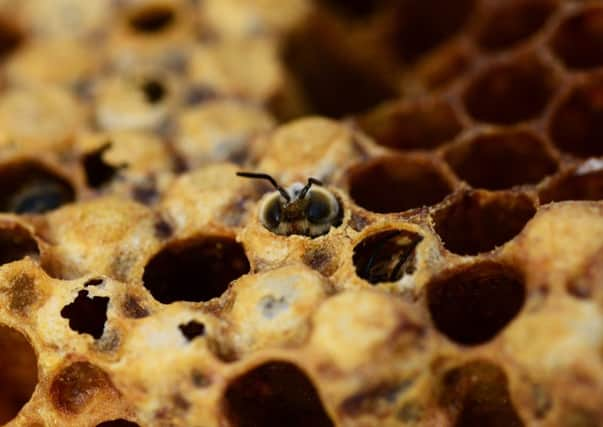Beekeeping: Survival battle is well worth the effort


Normally bees emerge from winter struggling to find enough food to survive but as soon as spring begins the huge bounty of pollen and nectar on the trees and flowers enables them to quickly gain strength and produce enough honey for humans to take a little.
What you collect then is fragrant and full of varieties and depths of flavours and as different from mass produced honey as a fine wine from cheap cooking plonk.
Advertisement
Hide AdAdvertisement
Hide AdUnfortunately ours produced none at that time of year. Winter was so warm and wet that they were weakened by damp and their recovery took time. When they did, it became necessary to split hives in two so they didn’t swarm all over the village and doing that also delayed the build up of honey.
By July, my bees were close to starving. Usually a gap in the supply of productive flowers in June gives insects some difficulty. This year a combination of too many rainy days when they couldn’t fly and a later gap meant that it was July when they really struggled to feed themselves and the larvae that were developing.
When I opened the hive in mid-July I found the bees had almost no food in store and one of the female worker bees was busy tugging a male drone bee out of the hive. Males are treated as unnecessary luxuries which can be thrown out of the family home and left to starve whenever times get hard.
Fortunately my wife didn’t take the same view when I arrived back empty handed so I was able to boil up some white sugar mixed with water and quickly got enough food into them to see them through.
Advertisement
Hide AdAdvertisement
Hide Ad